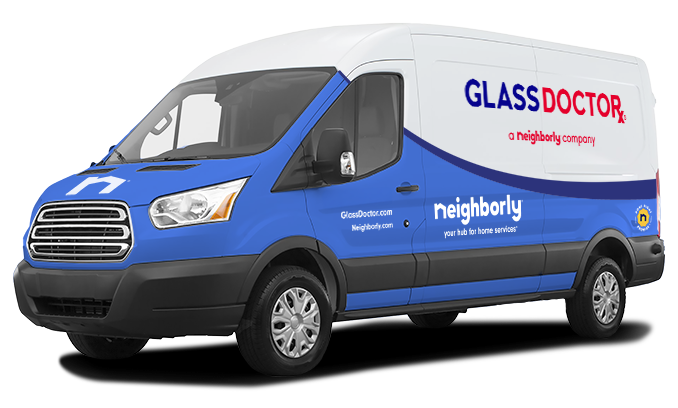
Glass Doctor reviews top commercial door closers for high winds, emphasizing durability and performance.
|
Great Falls. Oklahoma City. Chicago. What do these cities have in common? They're some of the windiest cities in the United States. And while that's wonderful for sailing or flying kites, it can be a pain when you're trying to prevent the doors to your business from blowing open or knocking over your customers. Keeping the exterior doors to your office building or storefront closed helps keep your entryway clean, reduces noise and insects, and increases customer and employee safety. This is where door closers come in those convenient devices that sit at the top of doors and automatically shut them when your customers forget. But not all door closers are created equal, especially when glass doors and high winds are involved.
Door Closers Prevent Damage
Most commercially available door closers can handle average wind gusts, but if your business is located in an area prone to high winds or frequent storms, it's better to invest in strong hinges and a heavy-duty door closer for your exterior doors. If the hinges and the door closer aren't strong enough to withstand high winds, doors can whip open, or slam shut too quickly. A door that opens too fast can cause damage to the closer arm, preventing it from working properly. If strong winds cause a door to slam shut, not only can it damage the door especially glass doors it can potentially injure the person walking through. So, while a higher grade, heavy-duty door closer might have a higher price tag, it could save you money in the long run by preventing property damage or even injuries that would cost you more later.
Related Topic: Should I Purchase Hurricane Shutters?
What Closer Should You Choose?
Federal, state, and local building codes can affect door closer requirements. Before choosing a door closer, check local building codes to find out what type of door closure may be required for your business. For example, high traffic entrances in healthcare, educational, institutional, and other large commercial buildings usually require Grade 1 closers (non-handed, adjustable strength, versatile installation) while retail storefronts usually require Grade 2 door closers. In addition, the American with Disabilities Act (ADA) also lists clear requirements for doors and door closers.
Door closers designed specifically for high winds all have several features in common. Most are rectangular in shape, are made from cast steel, and have four mounting holes. Many have a larger-than-normal rack and pinion gear assembly that allows them to handle heavy use and strong winds. Many heavy-duty door closers also have large, powerful springs that prevents wind from swinging the door open with no real resistance. Larger springs ensure the door stays closed and in the correct position on windy days. It's also important to check and make sure the door closer you choose has a backcheck valve, which prevents the door from catching the wind like a sail, slamming open, and causing damage to the door, frame, building, or a customer standing in the wrong place.
Additional Steps
The ADA (Americans with Disabilities Act) requires commercial doors to be easy to open. While there are closers that are strong enough to work in windy situations, they don't comply with ADA requirements. As a result, you may also need to install door stops and limiters to prevent the door from slamming open because of the wind. The amount of force required to open the door is heavily regulated, which makes opening and closing doors in windy conditions a concern. The ADA requires that an opening force of 8.5 lbs. be maintained. Here are some additional steps you can take to prevent the door from slamming when it's windy:
- Add door stops behind the door at 90 degrees.
- Build a wind wall to block the wind.
- If possible, adjust backcheck to prevent the door from opening too far.
- Install overhead stops (windchains).
- If/when the door is replaced, install with the wind, not against.
Extra Points for Beauty
Once you've decided on the strength and features your door closer needs to have, don't forget about how it should look. Glass doors are usually very beautiful and modern-looking, so they deserve a door closer that matches their style. Most closers come in standard hardware colors like gold, silver, and bronze, but some brands include additional designer colors like black, chrome, and brushed nickel. And remember, if you change the color of the door closer, you may want to purchase new hinges, door handles and new push bars to match.
Are Door Closers Difficult to Install?
Commercial door closers can be difficult to install. And installing door closers on glass doors comes with its own special set of challenges. As a result, first-time DIYers can make mistakes like damaging the doorframe, misaligning the closer, and breaking the door closer's hydraulic seals or O-rings. These mistakes cause unexpected door movements, oil leaks, and problems locking the door. They can even shorten the overall lifespan of your new door closer. Plus, if your door closer is under warranty, you could accidentally void the contract by trying to repair it yourself. If the door must be removed, this can cause even more issues because heavy glass doors can be easily damaged when moved. If you need a door closer installed or replaced at your business, call the service professionals at Glass Doctor. They've been trained to install, maintain, and repair all types of door closers, ensuring the components on your door remain safe to use and in good working condition. Contact your local Glass Doctor to learn more about our door closer repair services or to schedule an on-site consultation.

